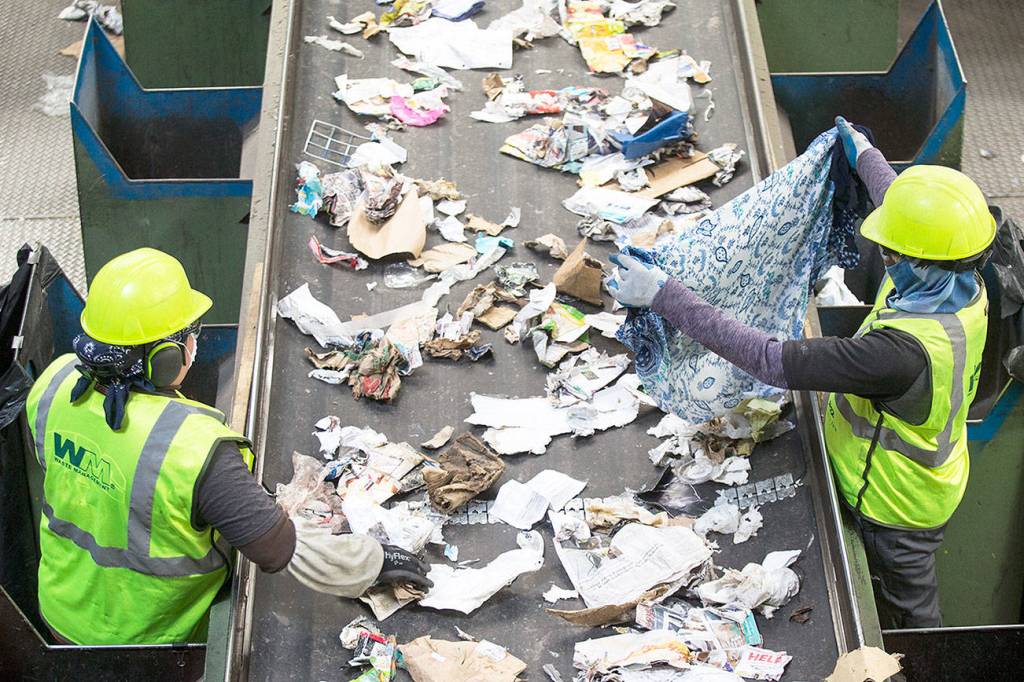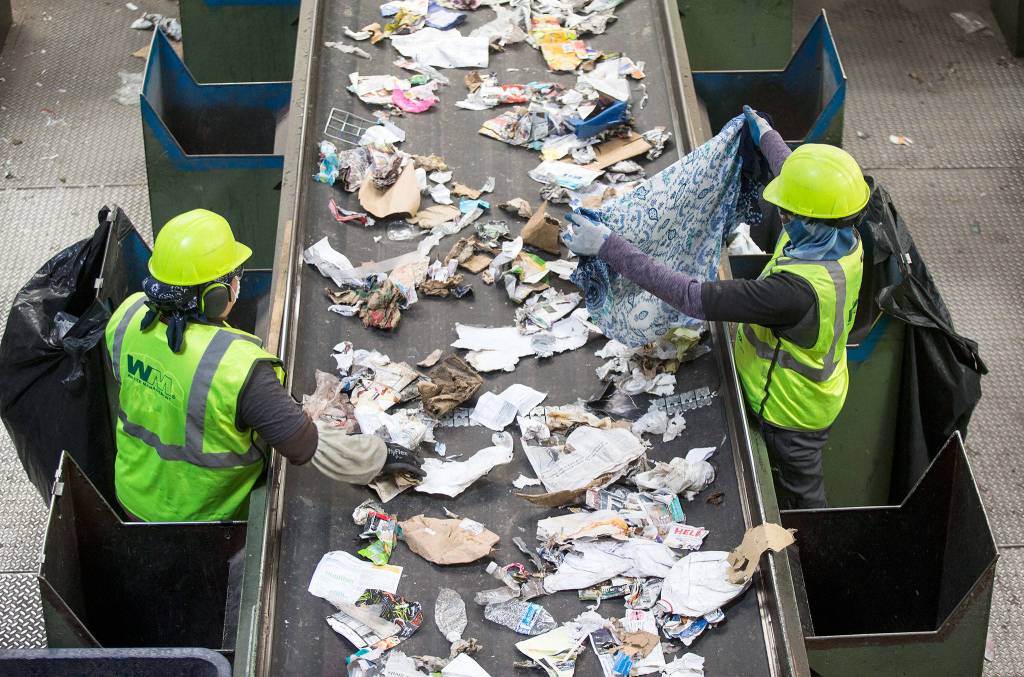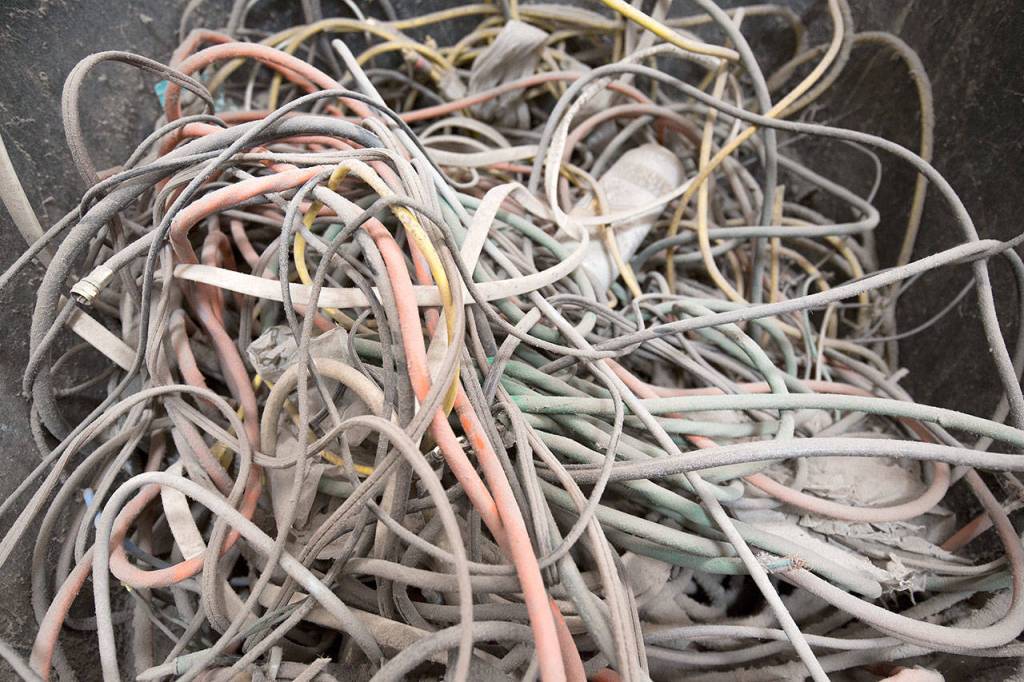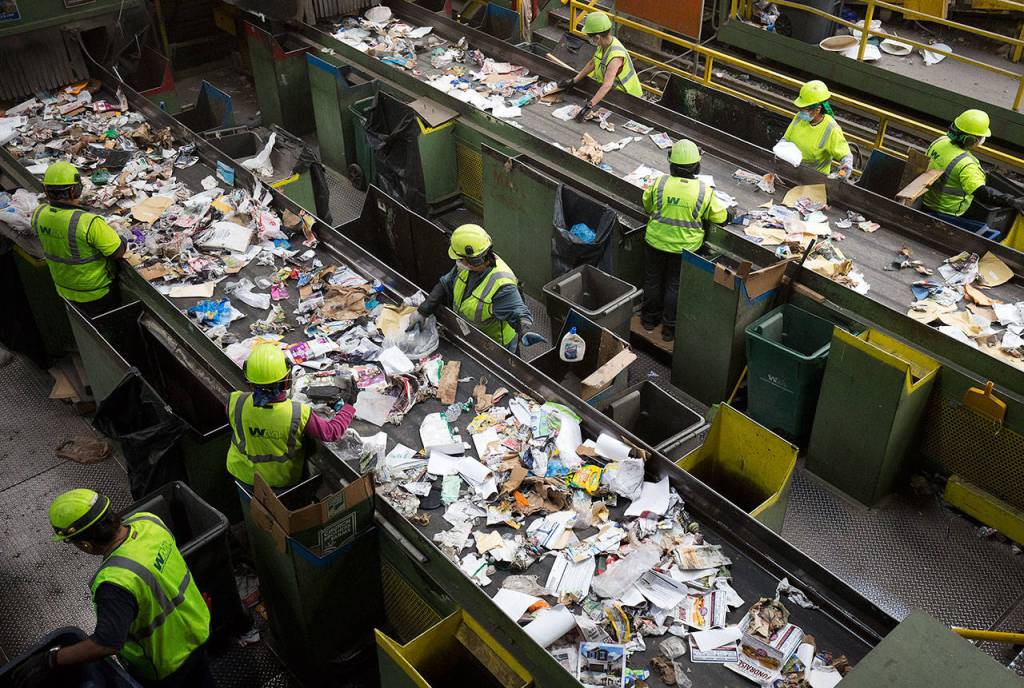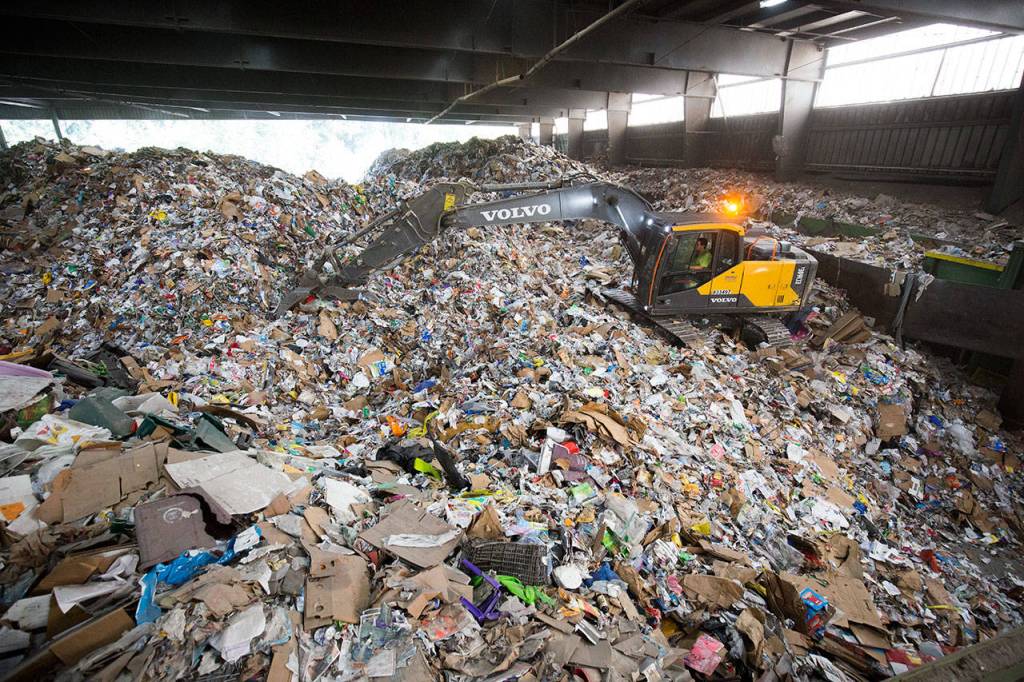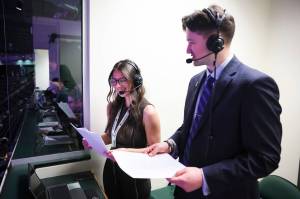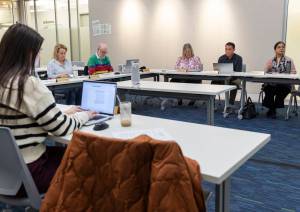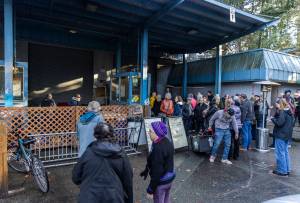Watch your waste stream: Recyclers get picky about trash
Published 1:30 am Friday, August 31, 2018






WOODINVILLE — At Waste Management’s Cascade Recycling Center, humans and machines toil at a frantic pace to keep cardboard, plastics and aluminum out of the landfill.
Things have become more hectic. After growing pickier over several years, China on Jan. 1 stopped accepting imports of many recyclable materials. That country had been the main destination for sorted bales from stateside recycling facilities.
“If there’s an upside, China has created a catalyst to rethink recycling,” said Jackie Lang, a spokeswoman for Waste Management. “The reality is, if there’s not a viable end market for a product, it doesn’t belong in the recycling container. People are understanding that more clearly today.”
To better sort the collective contents of thousands of recycling bins, Waste Management has taken steps such as slowing the processing lines at the Woodinville facility and adding workers. The recycling industry also redoubled efforts to educate customers.
The center on NE 190th Street takes in about 600 tons of potentially recyclable waste every day. On the tipping floor, an excavator shoves mounds of refuse onto a conveyor belt. This is where the contents from about two-thirds of the curbside recycling bins in Snohomish County wind up.
“This pile will grow or shrink depending on the time of year,” said Hannah Scholes, an education and outreach coordinator with Waste Management. “For example, around Christmas, we’ll see a lot more boxes.”
From there, it follows a crisscrossing path through a series of sorting machines.
An army of human hands picks through piles on the conveyor belt. Near the beginning of the line, neon-vested workers in hardhats pull out wire, garden hoses and other objects that could tangle up the machinery. Farther down, co-workers snatch plastic bags, which can’t be processed. Later, optical scanners and employees divert plastic bottles from the flow so they can be recycled.
At the end of the line, sorted materials get pressed into bales measuring 40 by 48 inches.
Inside the facility, a sickly sweet smell of garbage hangs in the air — the stench of food residues including milk, beer and soda that weren’t rinsed from containers.
A single soiled container could render a larger shipment unusable.
“Even the good stuff, we need clean, empty and dry,” said Brad Lovaas, executive director of the Washington Refuse & Recycling Association. “Not only is it contaminated, it contaminates other materials that people have properly separated.”
Well-intentioned people often fill curbside recycling bins with items that belong in the trash. However unrealistic, they’re likely hoping it can be recycled.
The industry has a name for it: “wish-cycling.” In practice, wishfully tossing trash into the recycling bin creates more waste and expense than sending it straight to the landfill.
“Some things at this point need to be safely disposed of,” Lovaas said. “To help us recycle right, when in doubt, throw it out.”
A few recycling basics from Waste Management:
•
Keep wires, garden hoses and large pieces of plastic out of the recycling bin. They can tangle up machinery at the recycling facility and are one of the first things that sorters take out.
•
Plastic food tubs — the kind used for yogurt, sour cream and other dairy products — can be recycled if they’re cleaned of food residue. Throw away the lids, though.
•
If you want to recycle plastic bottle caps, screw them onto the bottle; don’t toss loose caps into the recycling cart.
•
Plastic grocery bags should be recycled through collection sites at supermarkets and other stores.
•
No hazardous items. No-nos include propane tanks, lighters and needles.
•
Shredded paper can go into the compost bin. It poses a problem at the recycling plant. Tiny bits of paper can contaminate other sorted products.
•
Once paper becomes greasy, it’s no longer suitable for recycling. It can go into the compost bin.
Rules vary by location. Check with your local provider for specifics. More info: www.recycleoften recycleright.com.
Noah Haglund: 425-339-3465; nhaglund@herald net.com. Twitter: @NWhaglund.
Learn more
Want to learn more about keeping junk out of the landfill? Washington State University Extension is offering an eight-week, 40-hour training course this fall to take people far beyond recycling basics. It meets weekly from 6 to 9:15 p.m. on Wednesdays, starting Sept. 19. Apply by Sept. 14.
Topics include recycling, composting and hazardous waste, energy and water conservation, and the role social justice plays in environmental sustainability.
Contact Heather Teegarden, WSU Extension natural resource outreach programs coordinator, at 425-357-6027 or heather.teegarden@wsu.edu. Or go to http://tinyurl/wsu-scs.

